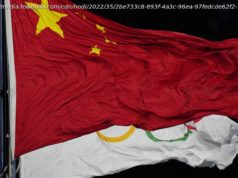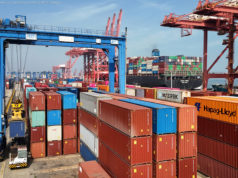NANCHANG, China — Liu Zixing craned his neck forward for help with fastening the goggles for his first ever taste of virtual reality. He took…
NANCHANG, China — Liu Zixing craned his neck forward for help with fastening the goggles for his first ever taste of virtual reality. He took a break from the mining ore business to travel to a VR theme park in this Chinese provincial capital not known for high technology.
“It feels like reality,” Liu said after shooting down robots in a virtual fighter jet, strapped to a spinning gyroscope lit in purple. “It’s just like you’re riding in a plane.”
Enthusiasm for VR has cooled somewhat after years of hype, but China’s leaders are trying to drum up excitement, hoping to take the lead in a technology they expect will eventually gain wide use.
Hoping to coax homegrown entrepreneurs to take the plunge, the government is educating students, subsidizing office spaces, and sponsoring conferences and competitions.
Nanchang’s VR Star park offers 42 rides and exhibits, including VR bumper cars and VR shoot-’em-ups. It’s the highlight of Nanchang’s “VR base,” a sprawling complex of mostly still empty, futuristic glass-and-steel offices.
The city of 5.5 million is the capital of Jiangxi province, a relatively impoverished region nestled in the mountains of south-central China, where the regional industries are copper mining and rice.
Officials hope that one day it will be a world-class hub for virtual reality.
“Frankly, VR isn’t 100% necessary in the Chinese market at the moment,” said Xiong Zongming, CEO of IN-UP Technology, one of dozens of firms being incubated by the VR base. “But with the government’s push, many other companies, departments and agencies are more willing to try it out.”
Xiong was born in Nanchang but studied and worked in Japan for nearly a decade before returning to China, where he settled in Shanghai. Nanchang officials enticed him back home with offers of free rent and 150,000 RMB ($22,340) in startup funds, part of an effort to lure back local talent from richer coastal cities to help lift the local economy.






